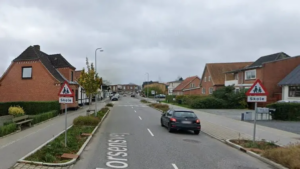Resume af teksten:
Den seneste PMI for eurozonen steg fra 50,6 til 51 i juli, hvilket indikerer en let økonomisk vækst efter et svagt andet kvartal. Denne vækst er primært drevet af servicesektoren, der ser ud til at stabilisere sig efter tidligere svaghedstegn. Fremgang i servicesektoren er afgørende for vækstudsigterne i tredje kvartal. På den anden side står fremstillingssektoren over for udfordringer med svækkede nye ordreindgange i juli og usikkerhed omkring handelsaftaler med USA. Inflationen er fortsat lav, hvilket passer til en økonomi med moderat vækst og mange usikkerheder. Efterspørgslen efter arbejdskraft er dog steget, hvilket udgør et positivt tegn i et risikofyldt miljø. På trods af disse tendenser forventes Den Europæiske Centralbank ikke at ændre renten i dag, men vil sandsynligvis revurdere situationen i september.
Fra ING:
The composite PMI increased from 50.6 to 51 in July. With uncertainty all around, an economy showing slight growth, increasing employment and weak inflation sounds surprisingly benign

Today’s PMI suggests slightly smoother sailing for the eurozone economy, which expanded in July after a weak second quarter
It’s really hard to get a good sense of direction about the eurozone economy at this point. Incoming data is still very much influenced by the US frontloading of European goods. This makes it hard to judge the underlying state of the manufacturing sector. Fortunately, the PMI tells us a bit more about how the economy is performing.
And the answer is…decently enough. The PMI reports a slightly expanding economy in July, after a weak second quarter. The improvements in the service sector are particularly encouraging. The service sector had seen weakening sentiment data, including warnings about weaker demand and output, but June saw some stabilisation, and July’s data shows expansion again. Being the largest part of the eurozone economy, this matters a lot for third-quarter growth prospects.
Manufacturing production has been bouncing around on trade developments, but the manufacturing output PMI does indicate that output has seen modest gains in recent months. Then again, new orders for manufacturing weakened in July, so whether a recovery can be maintained – especially with uncertainty around a possible trade deal with the US – is very much up in the air.
The inflation picture from the PMI shows softness for both goods and services, in line with an economy that is showing some growth but facing a lot of uncertainty. Demand for workers increased again, which adds up to a pretty benign growth environment if you consider all of the external risks to the outlook.
For the European Central Bank, today’s PMI won’t sway the governing council towards a different outcome of the interest rate decision later today. The ECB will be happy to sit this one out, watch out for potential drama over the summer and look at possible rate cuts again in September.
Hurtige nyheder er stadig i beta-fasen, og fejl kan derfor forekomme.










